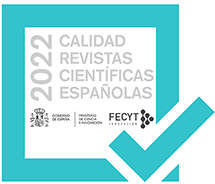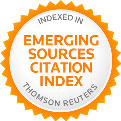Mejora personal y social a través de la promoción de la responsabilidad en la actividad físico-deportiva. (Personal and social improvement through the promotion of responsibility for physical and sporting activity).
Resumen
Fomentar la responsabilidad en los jóvenes a través de la práctica de actividad físico-deportiva podría favorecer la adherencia al ejercicio físico. Con ello, se pretende extrapolar el comportamiento responsable generado en el ámbito físico-deportivo al contexto global. Así pues, el objetivo del estudio fue proponer un programa de intervención en responsabilidad (PIRAFD) a partir de una amplia revisión sobre el desarrollo de la responsabilidad personal y social en la actividad físico-deportiva. Para ello, se consultaron las bases Science Direct, Sport Discus, Scopus, Psycoinfo, Isi web of Knowledge, Medline y TPSR Alliance. Se realizó, en primer lugar, un análisis de las diferentes líneas de investigaciones existentes, así como de los instrumentos desarrollados para la evaluación de la responsabilidad en el ámbito de la educación física y el deporte. A partir de este análisis, se realizó una propuesta de intervención para promover en los practicantes la responsabilidad personal y social, y lograr consecuencias positivas para su desarrollo moral, psicosocial y para una educación en valores.
Abstract
Promote responsibility in young people through the practice of exercise regularly could promote adherence to exercise. This is intended to extrapolate responsible behavior generated in the physical-sport global context. Thus, the objective was to propose an intervention program accountability (PIRAFD) from an extensive revision on the development of personal and social responsibility in the exercise regularly. To this end, the bases were consulted Science Direct, Sport Discus, Scopus, Psycoinfo, ISI Web of Knowledge, Medline and TPSR Alliance. Was conducted, first, an analysis of the different lines of existing research, as well as instruments developed for assessment of liability in the field of physical education and sport. From this analysis, we made a proposal for intervention on practitioners to promote personal and social responsibility, and achieve positive consequences for their moral, psychological and values education.
http://dx.doi.org/10.5232/ricyde2012.02902
---------------------------------------------------------------------
Referencias/references
Amorose, A. J., & Anderson-Butcher, D. (2009). Autonomy-suppotive coaching and self-determined motivation in high school and college athletes: A test of self-determination theory. Psichology of Sport and Exercise, 8, 654-670.
http://dx.doi.org/10.1016/j.psychsport.2006.11.003
Anderman, L. H., & Anderman, E. M. (1999). Social predictors of changes in students’ achievement goal orientations. Contemporary Educational Psychology, 25, 21-37.
http://dx.doi.org/10.1006/ceps.1998.0978
PMid:9878206
Cecchini, J. A.; González, C.; Méndez, A.; Fernández, J.; Contreras, O., y Romero, S. (2008). Metas sociales y de logro, persistencia-esfuerzo e intenciones de práctica deportiva en el alumnado de Educación Física. Psicothema, 20, 260-265.
PMid:18413088
Cervelló, E.; Jiménez, R.; Del Villar, F.; Ramos, L., & Santos-Rosa, F. J. (2004). Goal orientations, motivational climate, equality, and discipline of Spanish physical education students. Perceptual and Motor Skills, 99, 271-283.
PMid:15446655
Deci, E. L., & Ryan, R. M. (1987). The support of autonomy and the control of behavior. Journal of Personality and Social Psychology, 53, 1024-1037.
http://dx.doi.org/10.1037/0022-3514.53.6.1024
PMid:3320334
Deci, E. L., & Ryan, R. M. (2000). The “what” and “why” of goal pursuit: Human needs and the self-determination of behavior. Psichological Inquiry, 11, 227-268.
http://dx.doi.org/10.1207/S15327965PLI1104_01
Elliot, A. J. (1999). Approach and avoidance motivation and achievement goals. Educational Psychologist, 34, 169-189.
http://dx.doi.org/10.1207/s15326985ep3403_3
Escartí, A.; Gutiérrez, M.; Pascual, C., & Marín, D. (2010). Application of Hellison’s teaching personal and social responsibility model in physical education to improve self-efficacy for adolescents at risk of dropping-out of school. The Spanish Journal of Psychology, 13(2), 667-676.
PMid:20977016
González-Cutre, D.; Sicilia, A., y Moreno, J. A. (2008). Modelo cognitivo-social de la motivación de logro en educación física. Psicothema, 20, 642-651.
PMid:18940063
Goudas, M.; Dermitzaki, I., & Bagiatis, K. (2000). Predictors of student’s intrinsic motivation in school physical education. European Journal of Psychology of Education, 15, 271-280.
http://dx.doi.org/10.1007/BF03173179
Guay, F.; Vallerand, R. J., & Blanchard, C. (2000). On the assessment of state intrinsic and extrinsic motivation: The situational motivation scale (SIMS). Motivation and Emotion 24, 175-213.
http://dx.doi.org/10.1023/A:1005614228250
Gutiérrez, M.; Escartí, A., y Pascual, C. (2011). Relaciones entre empatía, conducta prosocial, agresividad, autoeficacia y responsabilidad personal y social de los escolares. Psicothema, 23(1), 13-19.
PMid:21266136
Hassandra, M.; Goudas, M., & Chroni, S. (2003). Examining factors associated with intrinsic motivation in physical education: a qualitative approach. Psychology of Sport and Exercise, 4, 211-223.
http://dx.doi.org/10.1016/S1469-0292(02)00006-7
Hastie, P. A., & Buchanan, A. M. (2000). Teaching responsibility through sport education: Prospects of a coalition. Research Quarterly for Exercise and Sport, 71, 1, 25-35.
PMid:10763518
Iso-Ahola, S. E., & St.Clair, B. (2000). Toward a theory of exercise motivation. Quest, 52, 131-147.
http://dx.doi.org/10.1080/00336297.2000.10491706
Llopis-Goig, R.; Escartí, A.; Pascual, C.; Gutiérrez, M., y Marín, D. (2011). Fortalezas, dificultades y aspectos susceptibles de mejora en la aplicación de un programa de responsabilidad personal y social en educación física. Una evaluación a partir de las percepciones de sus implementadores. Cultura y Educación, 23(3), 445-461.
http://dx.doi.org/10.1174/113564011797330324
Lewis, R. (2001). Classroom discipline student responsibility: the students´ view. Teaching and Teacher Education, 17, 307-319.
http://dx.doi.org/10.1016/S0742-051X(00)00059-7
Martinek, T.; Shilling, T., & Johnson, D. (2001). Transferring personal and social responsibility of underserved youth to the classroom. The Urban Review, 33, 29-45.
http://dx.doi.org/10.1023/A:1010332812171
Nien, C. L., & Duda, J. L. (2008). Antecedents and consequences of approach and avoidance achievement goals: A test of gender invariance. Psychology of Sport and Exercise, 9, 352-372.
http://dx.doi.org/10.1016/j.psychsport.2007.05.002
Ntoumanis, N., & Biddle, S. J. H. (1999). A review of motivational climate in physical activity. Journal of Sports Sciences, 17, 643-665.
http://dx.doi.org/10.1080/026404199365678
PMid:10487465
Pascual, C.; Escartí, A.; Llopis, R.; Gutiérrez, M.; Marín, D., & Wright, P. M. (2011). Implementation fidelity of a program designed to promote personal and social responsibility through physical education: A comparative case study. Research Quarterly for Exercise and Sport, 82(3), 499-511.
http://dx.doi.org/10.5641/027013611X13275191444026
PMid:21957709
Patrick, H.; Hicks, L., & Ryan, A. M. (1997). Relations of perceived social efficacy and social goal pursuit to self-efficacy for academic work. Journal of Early Adolescence, 17(2), 109-128.
http://dx.doi.org/10.1177/0272431697017002001
Ryan, R. M., & Deci, E. L. (2000). Self-determination theory and the facilitation of intrinsic motivation, social development, and well-being. American Psychologist, 55, 68-78.
http://dx.doi.org/10.1037/0003-066X.55.1.68
PMid:11392867
Ryan, A. M.; Hicks, L., & Midgley, C. (1997). Social goals, academic goals, and avoiding seeking help in the classroom. Journal of Early Adolescence, 17, 152-171.
http://dx.doi.org/10.1177/0272431697017002003
Smith, A. L. (2003). Peer relationships in physical activity contexts: A road less traveled in youth sport and exercise psychology research. Psychology of Sport and Exercise, 4, 25-39.
http://dx.doi.org/10.1016/S1469-0292(02)00015-8
Standage, M.; Duda, J. L., & Ntoumanis, N. (2006). Students’ motivational processes and their relationship to teacher ratings in school physical education: A self- determination theory approach. Research Quarterly for Exercise and Sport, 77, 100-110.
http://dx.doi.org/10.5641/027013606X13080769704046
PMid:16646357
Seligman, M., & Csikszentmihalyi, M. (2000). Positive psychology: An Introduction. American Psychologist, 55, 5-14.
http://dx.doi.org/10.1037/0003-066X.55.1.5
PMid:11392865
Standage, M.; Duda, J. L., & Ntoumanis, N. (2006). Students´ motivational processes and their relationship to teacher rating in school physical education: A self-determination theory approach. Research Quarterly for Exercise and Sport, 77, 100-110.
http://dx.doi.org/10.5641/027013606X13080769704046
PMid:16646357
Watson, D. L.; Newton, M., & Kim, M. (2003). Recognition of values-based constructs in a summer physical activity program. The Urban Review, 35, 217-231.
http://dx.doi.org/10.1023/A:1025781603097
Wentzel, K. R. (1993). Motivation and achievement in early adolescence: The role of multiple classroom goals. Journal of Early Adolescence, 13, 4-20.
http://dx.doi.org/10.1177/0272431693013001001
Wrigh, P. M., & Craig, M. W. (2011). Tool for Assessing Responsibility-Based Education (TARE): Instrument Development, Content Validity, and Inter-Rater Reliability. Measurement in Physical Education and Exercise Science, 15, 204-219.
http://dx.doi.org/10.1080/1091367X.2011.590084
---------------------------------------------------------------------
Palabras clave/key words
Texto completo/Full Text:
PDF------------------------ 0 -------------------------
RICYDE. Revista Internacional de Ciencias del Deporte
![]()

Publisher: Ramón Cantó Alcaraz
ISSN:1885-3137 - Periodicidad Trimestral / Quarterly

